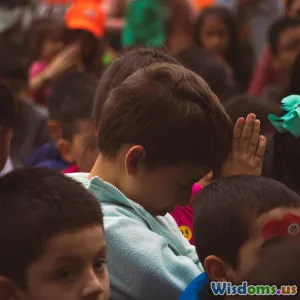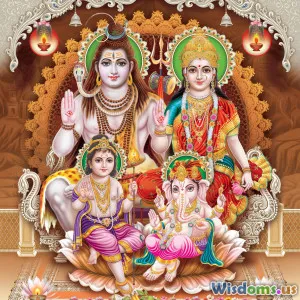
Ramadan in the Digital Age Muslim Fasting Traditions Meet Modern Life
8 min read Explore how Ramadan traditions adapt in the digital era, blending faith and technology seamlessly. (0 Reviews)
Ramadan in the Digital Age: Muslim Fasting Traditions Meet Modern Life
Ramadan is widely regarded as one of the most significant periods of spiritual devotion and self-discipline for over a billion Muslims globally. Traditionally, this holy month crowns fasting at dawn until sunset, coupled with prayer, charity, and reflection. However, as the digital age advances, the intersection between sacred traditions and modern technology is reshaping how Muslims observe Ramadan. Far from diluting spiritual significance, digital tools are empowering communities, enhancing religious experience, and compensating for modern lifestyle complexities.
The Timeless Spirit of Ramadan
At its core, Ramadan commemorates the first revelation of the Quran to Prophet Muhammad, making fasting (sawm) an act of obedience, purification, and empathy for those in need. Traditionally, Muslims abstain from food, drink, smoking, and intimate relations from dawn (Suhoor) to sunset (Iftar). Beyond physical abstinence, Ramadan encourages deeper introspection, community bonding, and charitable deeds (zakat).
The rituals have long been tied to cultural and communal practices: families gather for Iftar, mosques hold nightly Taraweeh prayers, and charitable events flourish. Yet global modernization has redefined daily rhythms, urban lifestyles, and work patterns—posing challenges to age-old customs.
Enter the Digital Age: Transforming Observance
Digital Apps Revolutionizing Fasting
Smartphone applications cater uniquely to Ramadan, offering highly accurate prayer and Suhoor/Iftar timings based on geography and astronomical calculations. Popular apps such as Muslim Pro and IslamicFinder not only notify users about prayer time but provide Quran recitations, Ramadan-specific dua (supplications), and fasting trackers.
For example, data from Muslim Pro indicates spikes in app usage during Ramadan, reflecting the demand for tech-enabled support in religious observance. These tools compensate for the complexities of modern urban schedules where natural indicators like sunset might be obscured.
Social Media: Building Virtual Ummah
Platforms such as Instagram, Twitter, and YouTube play a prevailing role in connecting Muslims worldwide during Ramadan. Social media influencers and Islamic scholars broadcast daily reminders, motivational talks, and educational content which spreads awareness and inspiration. Ramadan challenges, such as sharing meal photos or acts of kindness, promote community participation beyond geographical boundaries.
For instance, during Ramadan 2023, hashtags like #RamadanMubarak and #RamadanGoals trended globally, reflecting collective spirit online. These digital interactions complement mosque activities, fostering a renewed global sense of ummah (community) even amid pandemic restrictions and social distancing.
Virtual Ifthars and Online Prayer Sessions
The COVID-19 pandemic accelerated the acceptance of virtual religious gatherings, compelling mosques worldwide to broadcast taraweeh prayers and host online sermons. Many communities organize virtual Iftars via Zoom or Google Meet, preserving togetherness despite physical separation.
A 2021 Pew Research Center survey showed more than 40% of Muslim respondents attended online religious services at least occasionally, a significant increase compared to previous years. This newfound virtual infrastructure benefits those with mobility constraints or dispersed diasporas longing for communal bonds.
Smart Home and Kitchen Gadgets in Ramadan
Modern smart kitchen technology streamlines Suhoor and Iftar meal preparation through programmable cooking devices that can be set to have meals ready just before blanketing sunset. IoT-connected refrigerators remind users regarding Iftar ingredients, while meal-planning apps contribute healthy, balanced fasting menus balancing nutrition and tradition.
Such innovations reflect a lifestyle where faith and convenience harmonize, enabling devotees to focus more on spirituality rather than logistics.
Challenges and Critiques
The digital intersection also invites critical discussions regarding distractions and authenticity. Excessive screen time or consumerism surrounding Ramadan promotions might dilute spiritual focus. Tech dependence risks marginalizing offline, intimate family experiences cherished during the holy month.
In addition, unequal technology access can create disparities, where rural or economically disadvantaged communities benefit less from digital Ramadan resources. Accessibility issues underline the digital divide affecting religious inclusivity.
Some religious authorities urge mindfulness, warning that while technology serves as facilitation, it cannot replace fundamental experiential elements of Ramadan—physical fasting, communal prayer, and personal reflection.
Integrating Tradition With Modernity: A Balanced Approach
Many Muslims consciously adopt a hybrid approach—integrating digital tools to assist fasting schedules and community interaction, while preserving offline rituals and spiritual discipline.
An example includes using apps for accurate prayer times and Quran reading, yet opting for in-person mosque attendance when safe. Families combine real-life Iftar gatherings with selective social media sharing, enriching relationships both online and offline.
Educational platforms leverage videos and podcasts to disseminate Qur’anic teachings effectively to younger, tech-savvy audiences who may find traditional textual study less engaging.
As shared by Dr. Amina Wadud, a prominent Islamic scholar: “Technology is a vehicle—it accelerates spiritual journeys when steered with intention, not convenience.”
Ramadan’s Digital Future: Trends to Watch
-
Augmented Reality (AR) and Virtual Reality (VR) Mosque Experiences: Immersive religious environments could allow distant worshippers to join prayers virtually, enhancing sensory spiritual engagement.
-
Artificial Intelligence (AI) for Personalized Spiritual Coaching: AI-powered platforms might offer tailored fasting advice, Quranic teaching, or charity matching, optimizing individual Ramadan goals.
-
Global Charity Platforms: Crowdsourced giving and blockchain transparency are revolutionizing zakat distribution, making donations during Ramadan more efficient and trustworthy.
-
Wearable Tech to Monitor Health During Fasting: Wristbands and mobile sensors could provide real-time hydration and glucose monitoring, ensuring safer fasts for individuals with health considerations.
These trends embody growing integration between faith and innovation, shaping Ramadan observance for coming generations.
Conclusion
Ramadan, rooted in centuries of tradition, continues to thrive as a dynamic spiritual experience adapting faithfully within modern contexts. The digital age offers unprecedented tools enhancing the observance of prayer, fasting, charity, and communal unity without compromising sacred values. The challenge and opportunity lie in mindful usage—leveraging technology to facilitate, bond, and empower Muslims worldwide during this transformative month.
Ultimately, Ramadan in the digital era exemplifies how heritage and modern life coalesce to enrich faith journeys, reminding us all that spirituality can evolve without losing its essence in an age of constant change.
Ramadan Mubarak — may this sacred month illuminate your heart whether in pixels or in person.
Rate the Post
User Reviews
Popular Posts




















